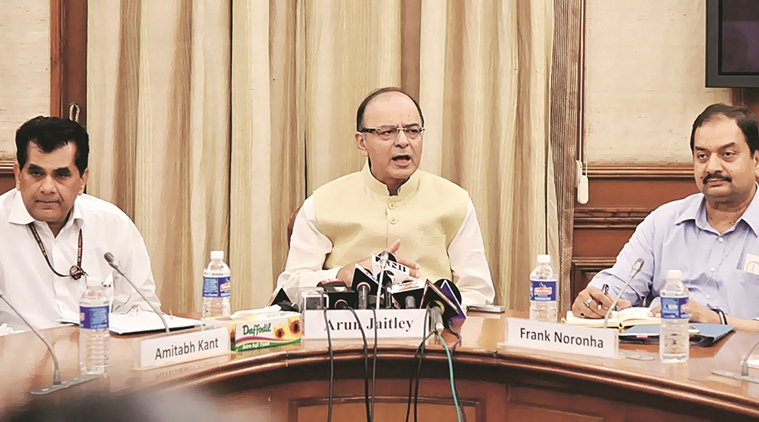-
Tips for becoming a good boxer - November 6, 2020
-
7 expert tips for making your hens night a memorable one - November 6, 2020
-
5 reasons to host your Christmas party on a cruise boat - November 6, 2020
-
What to do when you’re charged with a crime - November 6, 2020
-
Should you get one or multiple dogs? Here’s all you need to know - November 3, 2020
-
A Guide: How to Build Your Very Own Magic Mirror - February 14, 2019
-
Our Top Inspirational Baseball Stars - November 24, 2018
-
Five Tech Tools That Will Help You Turn Your Blog into a Business - November 24, 2018
-
How to Indulge on Vacation without Expanding Your Waist - November 9, 2018
-
5 Strategies for Businesses to Appeal to Today’s Increasingly Mobile-Crazed Customers - November 9, 2018
Cabinet approves new norms to push construction sector: Jaitley
In a major relief to the construction industry in distress from pending government payments to the tune of Rs 70,000 crore and large number of its projects were stalled due to stagnation since 2011 locking up 45% of over Rs 3 lakh crore loans, the Centre on Wednesday chose to open an escrow account to help them repay bank loans, speed up the ongoing projects and increase the ability to bid for new contracts.
Advertisement
Under the new rule, even when a construction award is under arbitration, 75% of the money will be paid to the concessionaire against margin-free bank guarantee by the contract-awarding body.
Gross value added (GVA) in the construction sector – which accounts for 8% of the country’s gross domestic product (GDP) and employs 4 crore people – has been growing at rates far lower than the overall GVA growth for the last few quarters.
According to Niti Aayog’s proposals, which were cleared by the CCEA, the Department of Financial Services and the Reserve Bank of India will consider giving one-time scheme for stressed bank loans in the sector.
The move will help construction companies take stranded infrastructure projects forward and also service their debt taken from banks and financial institutions.
The cabinet, he said, made a decision to provide the option, for the shifting of disputes between public bodies and contractors to the new arbitration act from the old arbitration act. The escrow account can be used to repay bank loans or to meet commitments in ongoing projects.
The reforms would have a direct impact on real estate, roads and highways and other infrastructure sectors, bringing down the number of stalled projects in the sector, it is expected.
Public sector units and government departments have been asked to transfer cases under arbitration to the amended Arbitration Act, with the consent of the contractors.
Jaitley said in new contracts, there will be a provision for a conciliation board consisting of independent domain expert who will enter into contractual negotiations if there are changes in commercial circumstances around the project.
A report commissioned by the Cll indicates that: (i) Pending claims from government bodies are key factor behind burgeoning debt of construction companies, accounting for -150% of the debt; (ii) Over 85% claims raised are still pending of which 11% are at the level of employers, 64% at arbitrators and 8,5% in Courts; (iii) Average settlement time is 7.5 years; (iv) “Awarded claims” do not get settled after the Arbitrator’s decision; (v) nearly all court orders uphold the arbitrators’ decisions and referring claims to courts leads to delayed pay-out by about 2.5 years; and (v) Only about 8% of total claimed amount (among settled claims) was agreed for and paid out by NHAI in FY15. Over 85 percent of the claims raised against government bodies are still pending of which 11 per cent is pending with the government agencies, 64 per cent with arbitrators and 8.5 per cent with courts. The average settlement time for claims is estimated at more than seven years. Moreover, a majority of arbitration awards have gone against the Government agencies.
Advertisement
In the case of NHAI, of a total of 347 arbitral awards, 38 went in favour of the authority and 309 in favour of the contractor/concessionaire. Out of the arbitral awards in NHAI cases, more than 90% were unanimous awards in which all arbitrators including the one appointed by NHAI had concurred in the decision.





























